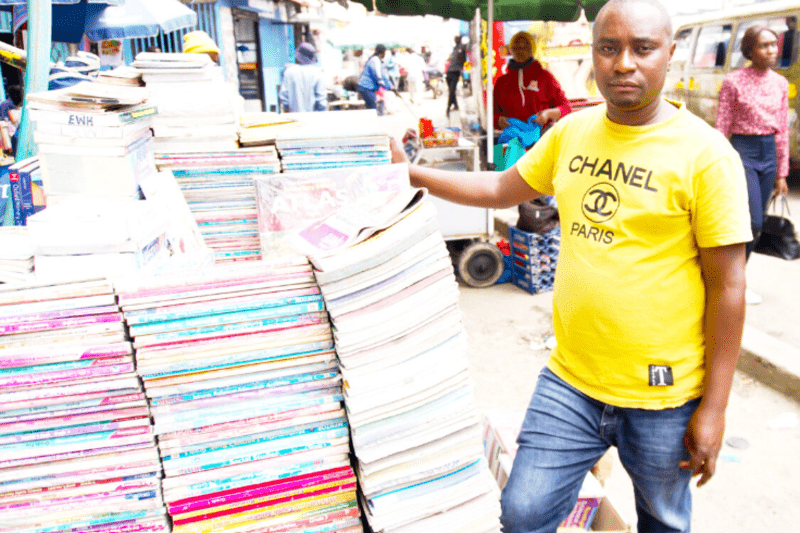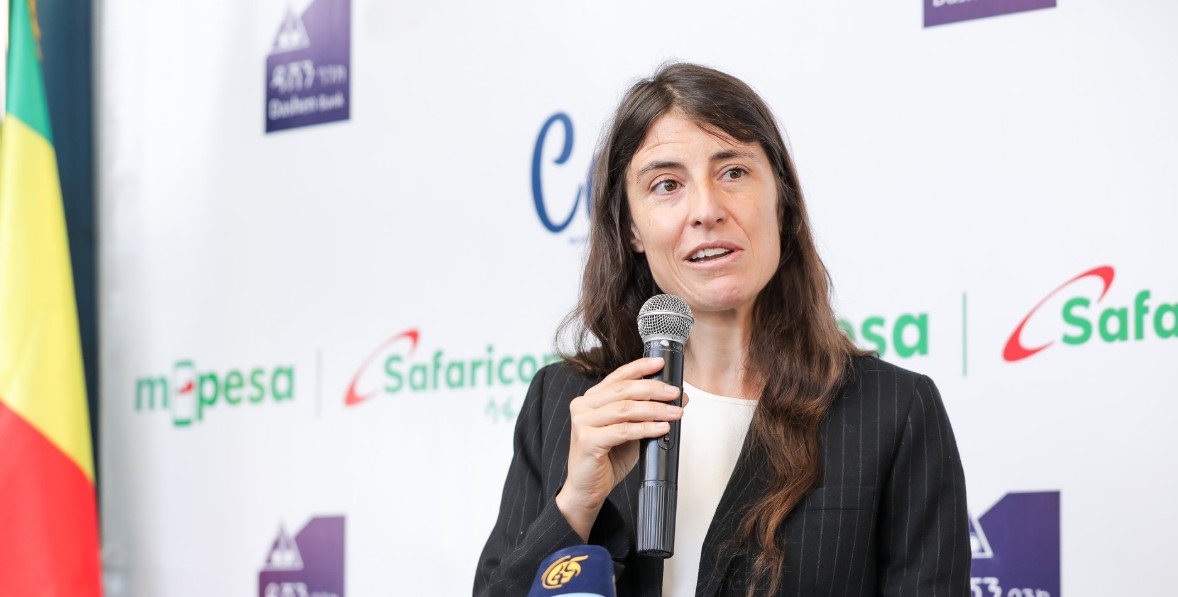Boon for second-hand books traders in Eastleigh as cost of living fuels demand

These vibrant stalls, often set up right by the roadside, promise adventure, knowledge, and discovery
As you walk down Mohammed Yusuf Haji Avenue or Pumwani Road in Nairobi's Eastleigh, you encounter an unexpected literary paradise. Here, an array of second-hand books is displayed on wooden tables and makeshift shelves, inviting book lovers, students, and anyone with a passion for reading.
These vibrant stalls, often set up right by the roadside, promise adventure, knowledge, and discovery. Their diverse collection caters to various educational needs and interests, making it a crucial resource for the community.
More To Read
- How community initiative is reviving Eastleigh’s cricket legacy
- Eastleigh MCA blames county officials for destruction of newly built Captain Mungai Street
- Youth football comes alive in Eastleigh as Fazam Academy clinches Moi Cup title
- Eastleigh’s 24-hour economy key to Kenya’s commerce, says CS Lee Kinyanjui
- Nairobi County, Eastleigh Business Association agree on food safety and restaurant licensing
- CBE curriculum spirit alive in Eastleigh as parents lead new wave of youth football development
Notable in these stalls are stacks of school textbooks for different grades which are prominently displayed and range from those early childhood education learners to high school level.
Textbooks aligned with the new Competency-Based Curriculum (CBC) have been neatly labelled and sorted by the various subjects such as mathematics, science, social studies, and languages.
Next to the textbooks, a section of colourful storybooks catches the eyes of young readers passing by. To the side, another section boasts a variety of novels catering to both young adults and mature readers. Interspersed among these are international textbooks for those following different educational systems or seeking specialised knowledge.
Hosea Mwangi, a dedicated bookseller, stands by his stall, ready to assist customers, offer recommendations, and help them find the books they need. Despite the lack of a roof, Mwangi's stall has served the community for years, providing affordable second-hand books.
“I have been selling second-hand books since 2016,” Mwangi said with a smile.
Just a few minutes after our arrival, a woman approached the stall, holding a Grade Three textbook. She explained to Mwangi that her child had advanced to Grade Four, and she wished to exchange the old book for a second-hand Grade Four textbook.
“My child has moved to grade four, and we no longer need this book. I'm hoping to exchange it for a second-hand Grade Four textbook,” she said.
With a nod of understanding, Mwangi carefully examined the condition of the Grade Three textbook before turning to the shelves behind him. His experienced fingers quickly navigated through the array of textbooks, searching for the appropriate replacement.
“This should just be what you need,” he said, handing over the textbook to his customer.
Mwangi noted that people, especially parents from various parts of Nairobi, flock to Eastleigh in search of second-hand books.
“Eastleigh is well-known for selling second-hand textbooks. Although there are other places where second-hand books are sold, Eastleigh is considered the mother of all since it's like where this business started. I have customers who come as far as Thika just to buy books,” he said.
One of the parent who had come to exchange a book at the stall, emphasised the financial benefits of buying second-hand books.
“I avoid buying books from bookshops because they are expensive compared to second-hand books, which are much cheaper,” she explained, declining to be named.
“For a book which costs Sh850 in a bookshop, I can get it here at Sh300 or Sh400 as long as I have another book to exchange it with.”
Second-hand book sales have become a cornerstone of sustainable literature distribution, offering an alternative to traditional bookstores, while promoting the reuse and recycling of printed materials.
In Eastleigh, second-hand book vendors obtain their stock through various channels, including direct purchases from individuals, bookshops, and library clearance sales. This acquisition approach ensures a steady influx of pre-owned books into the market.
Upon acquisition, the vendors assess the condition of the books and their resale potential. Factors such as physical condition, popularity, edition, and demand are taken into account to determine the books' resale value.
“Each book is priced based on its evaluated condition, rarity, demand, and market trends. Pricing guides and market research may inform the pricing decisions, ensuring fairness and competitiveness in the market,” Mwangi explained.
However, the business is not without its challenges.
Stanley Kiragu, another vendor, one significant issue is the risk of receiving stolen books from children who come to exchange or sell them.
“Sometimes, we receive stolen books from children. It's usually hard to differentiate between a genuine child and one who is lying because some of them claim they have been sent by their parents to exchange a book. Some of these cases are very serious and end up involving the police. To avoid this, we make sure it's the parent who comes to the stall to exchange or sell a book,” Kiragu said.
Business fluctuations also pose a challenge. According to Kiragu, the busiest months are January, February, and March when children are reporting back to school. Conversely, he says business slows down in November and December as students concentrate on national examinations.
“It's really hard to record daily profits in this business because some days you make a lot of money, and other days much less. But it's a good business since I'm able to provide for my family and even pay for my daughter's school fees, who is now in Form Three,” he said.
The frequent changes to the CBC curriculum, where the Ministry of Education regularly introduces new textbooks, also pose a challenge to the vendors. Their business suffers as a result, and they are forced to dispose of outdated books, which are then often collected by people for waste use.
Despite these challenges, dedicated book vendors continue to serve their community with unwavering commitment.
“We try our best to ensure that every book we sell is in good condition and useful for our customers. It's a matter of trust and responsibility. And as long as I’m able to provide for my family, I’m okay,” Kiragu said.
As parents and students flock to these stalls in search of knowledge and adventure, Eastleigh remains a crucial hub for second-hand books, enriching lives and promoting lifelong learning.
The area remains a vibrant hub of literary culture and community spirit, where every book has a story and every customer finds satisfaction.
Before you go, how about joining our vibrant TikTok and YouTube communities for exciting video stories?
Top Stories Today














































